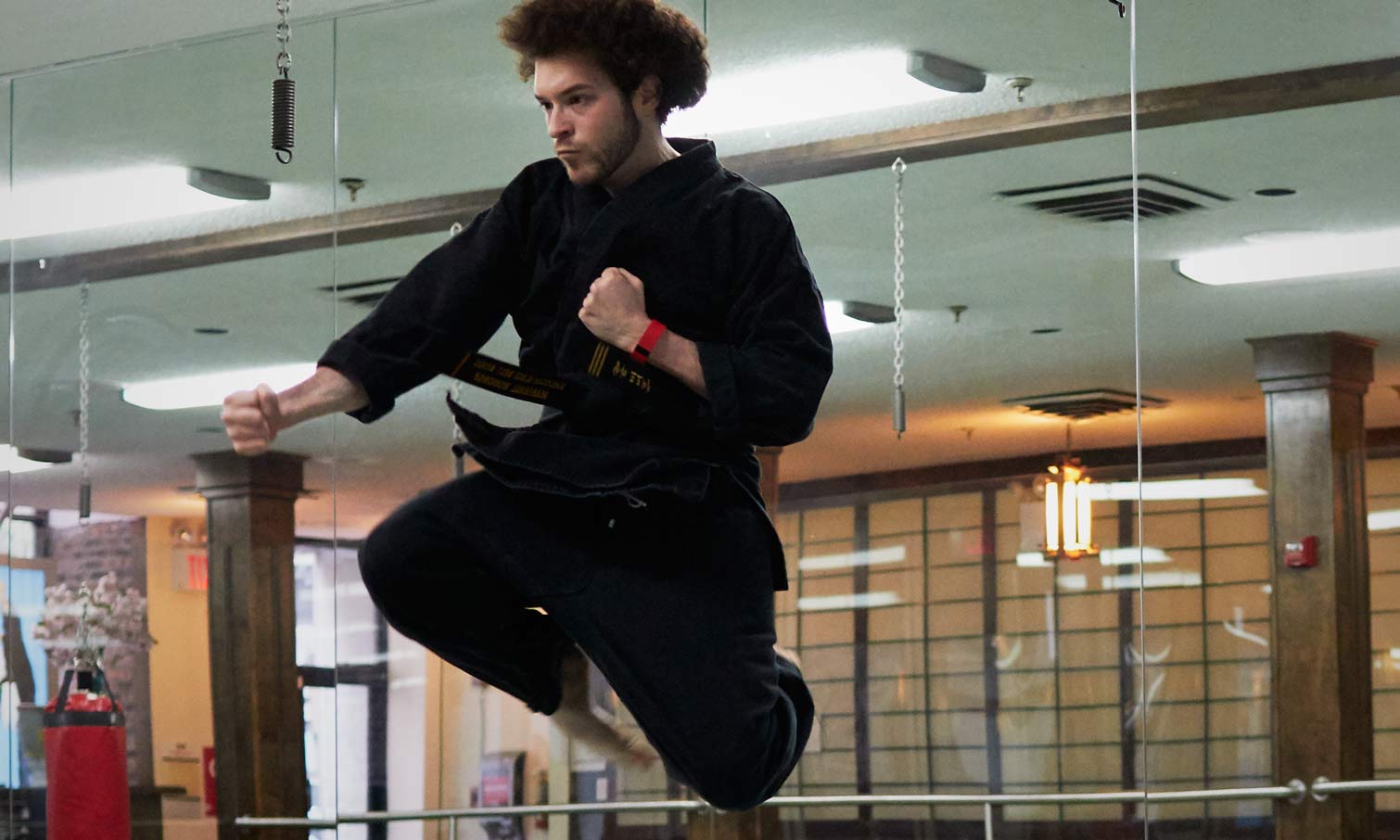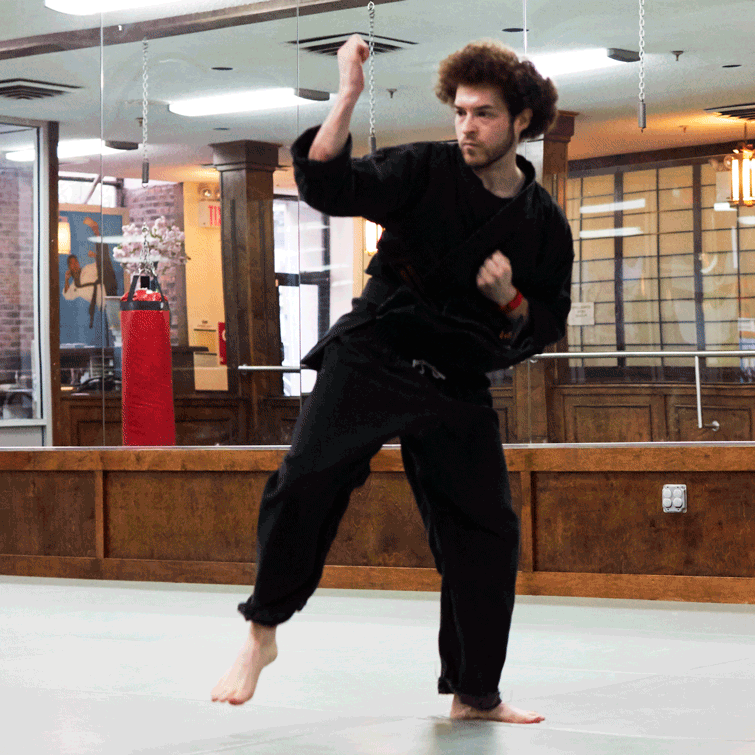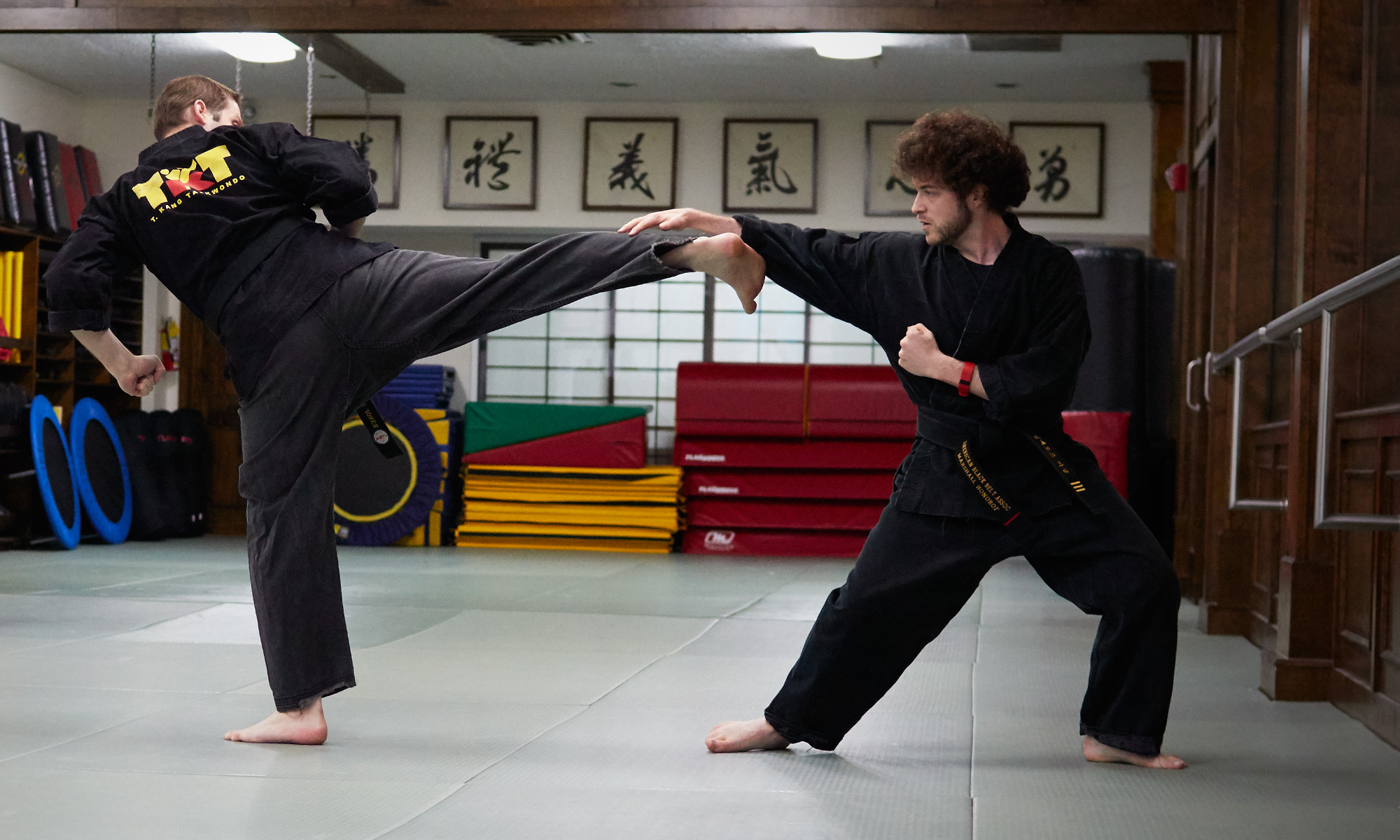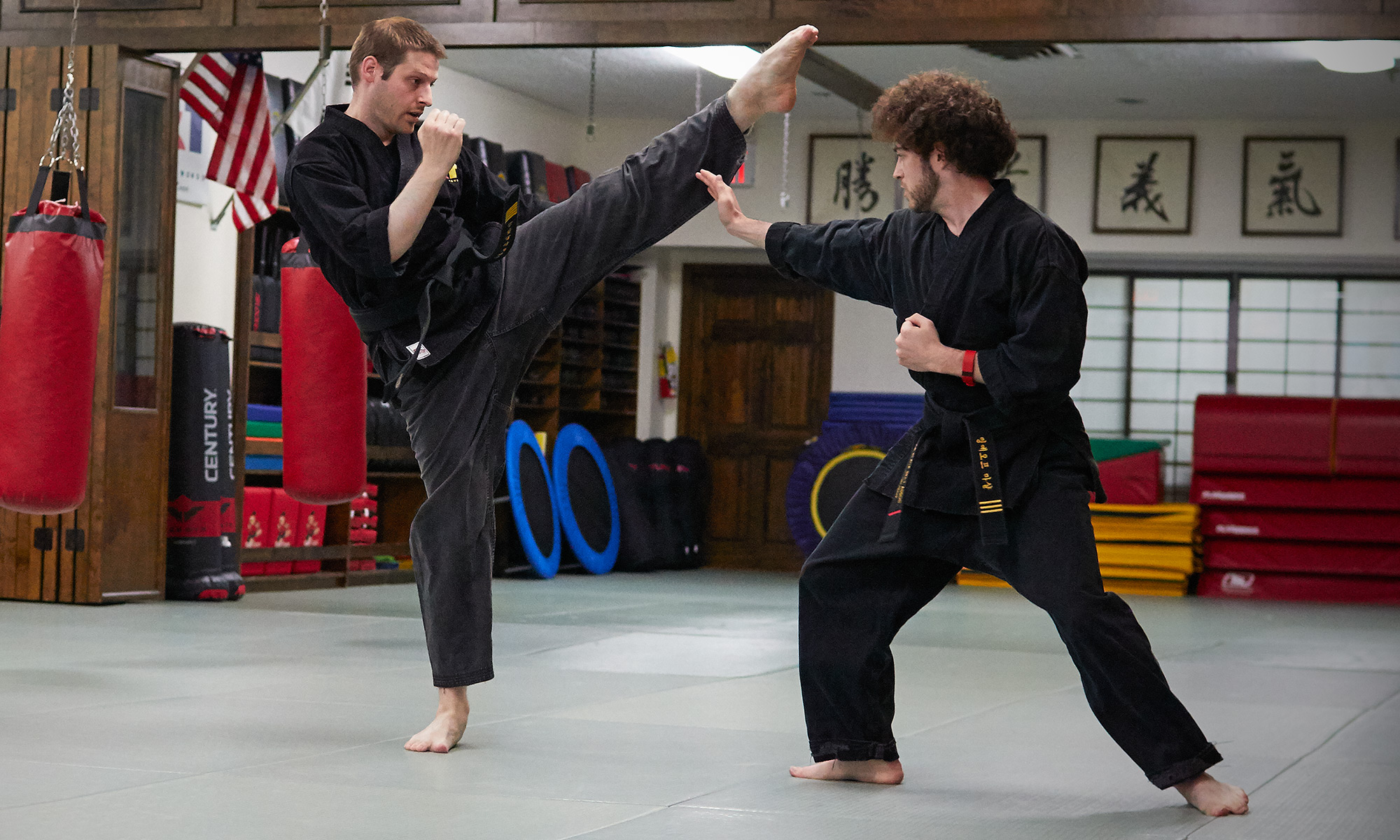Can a Fitbit Work for Martial Arts?
High-end fitness trackers today can track heart rate and calories burned; does that make them useful for martial artists?

Ever since fitness trackers became a Thing We Have to Live With, eager gym rats have taken to the internet to ask the tough questions: Are these trackers good for running? Are they good for hiking? Are they good for cycling? Are they good for swimming? Back when it was clear the Fitbit was going to inspire a lot of competition, I did a quick Google search to find out whether they were good for martial arts. The short answer was that no one knew.

Fast-forward to the present day, and it turns out that people still don't really know. A search on the subject reveals a few questions on message boards and blogs, but no deep dives from a tech perspective. I decided that if no one else was going to investigate this issue, I would have to take it upon myself. I strapped on my new Fitbit Charge HR and journeyed to the dojang (T. Kang Taekwondo in Tribeca).
MORE: Best Fitness Trackers
The Basics
A few years ago, it probably would have been pointless to wear a fitness tracker during martial arts practice. Even the most advanced fitness tracker didn't do much except measure steps and approximate calories burned. While that worked fine for walking, hiking, running and (to some extent) cycling, it wouldn't have made much of a difference for martial arts — exercise that's often stationary and dependent on arms as much as legs.
By using a fitness tracker, I hoped that I would be able to learn how many calories I burned in each practice, how consistently I could get my heart rate into the sweet spot and how well I slept each night after a few hours at the dojang.

Fitness trackers today are a little more advanced. (Or they can be, at least; some of them are still very much just for runners.) The Fitbit Charge HR, for example, tracks not only steps taken, but also flights of stairs climbed, calories burned, heart rate and sleep quality.
I got a Charge HR after completing an insurance-sponsored health challenge at work, and honestly, the heart rate monitor is the only thing that convinced me to keep the device rather than foisting it off on my roommate. After all, for martial arts, a step counter is about as relevant as a baseball glove, but a heart monitor could theoretically impart some useful information.
By using a fitness tracker, I hoped that I would be able to learn how many calories I burned in each practice, how consistently I could get my heart rate into the sweet spot and how well I slept each night after a few hours at the dojang. As it turns out, I was able to discover all of those things — they're just not very useful.
Way of the Hand and Foot
After getting permission from my instructor to wear the fitness tracker during class, I was all set. To give some relevant background information, I study tae kwon do, a Korean martial art that dates back to the end of World War II. While the style teaches plenty of punches and strikes, and even a tiny bit of grappling, most people recognize it for its high, quick, flashy kicks.
Just to be sure I got the full experience, I wore the Charge HR during classes in which we review forms, kicking combinations and self-defense, as well as during sparring and bag workouts. In those sessions, we hit both light and heavy targets with hands and feet, striving for maximum accuracy and power.

I was initially skeptical that a wrist-mounted device could track my heart rate accurately, but the Fitbit was sensitive to the changing pace of my exercise, and showed me strong contrasts among my active, cooldown and resting heart rates. Without an independent tracker to compare against, it's hard to tell whether the Fitbit was 100 percent accurate, but it seemed to be accurate relative to itself.
I found that the Fibit was also pretty good at tracking my sleep. I've found I tend to be a fairly sound sleeper, and the Fitbit backed up those observations. Each night, it noticed only a few patches of "restless" sleep, pegging me as fully conked out the rest of the time. The device did recommend that I get a full 8 hours rather than my usual 7-and-a-half, but to its credit, it's probably right.

I also found the Fitbit Charge HR to be an admirable step-tracker, though this feature is not strictly relevant for martial arts. It pretty accurately mapped how many steps I take in the course of a day and the amount of ground I cover. While this information didn't change any of my habits or travel methods, it was still interesting to learn how far I moved on any given day.
What Went Wrong
In spite of its general competence as a fitness tracker, the Fitbit Charge HR fell short of my hopes in tae kwon do. What the device measures well, I didn't need to know, and what I needed to know, it doesn't measure well.
For starters, the device is clearly not intended to stay affixed to a user's wrist during martial arts. It works well enough with everyday walking and running, since regular motions don't do much to faze this tracker. Martial arts, on the other hand, rely on fast, snapping motions. As a result, the tracker constantly slid down my arm. I tried tightening the band, and while it wasn't comfortable, it did work — for a while. When my arm got sweaty, the Charge HR again refused to stay put, and I was forced to readjust it between each punch or strike (when possible).
The lack of a good fit is a problem for a variety of reasons. First and foremost, it's uncomfortable. Worse still, it's a hazard to both the device and the user's wrist. Especially with bag-focused workouts, it's very important to know exactly how your knuckles and your wrist line up. If the tracker stays put, this isn't a problem. If it's prone to slide, you could wind up smashing the tracker against your wrist, which I did. Neither man nor machine was hurt, but it's not hard to see that either one could be.
The type of exercise you do plays a big role in caloric calculations, and the Fitbit seems primarily geared toward runners.
From measuring my heart rate, the Charge HR tried to determine the amount of calories I'd burned, although the measurement did not appear very accurate. The Mayo Clinic suggests that 1 hour of tae kwon do burns 752 calories in a 160-pound individual, meaning it should burn approximately 682 calories in a 145-pound journalist. My instructor, who wore a chest-mounted heart monitor, informed me that review classes can burn about 800 calories, while sparring classes can burn in excess of 1,000.

After an hour at a review class, my Fitbit claimed that I'd burned approximately 400 calories, off by a factor of roughly 40 percent. When I did a review class and a sparring class one right after the other, the Charge HR told me I had burned about 500 calories, which is likely somewhere about 70 percent incorrect. This means I took it very easy, the Mayo Clinic is way off or the Charge HR is just not that accurate. Without testing a chest strap (and independently confirming the strap's accuracy, as well as its caloric calculations), it's hard to say, but something definitely seems off about the numbers.
There are lots of reasons why the Charge HR may not have gauged my exercise accurately. First and foremost, the heart monitor relies on very consistent positioning to get an accurate reading via blood flow in the wrist. It's not possible to do that unless the tracker is affixed very firmly, which is hard, if not impossible to do with martial arts.
Furthermore, the Fitbit Charge HR determines calories burned based on your sex, weight and heart rate, but that's a rather simplistic way of deriving the number. The type of exercise you do plays a big role in caloric calculations, and the Fitbit seems primarily geared toward runners.
Is It Worth It?
I don't hate the Fitbit Charge HR. It's a fun way to see how much you move in the course of a given day, and I found some of the sleep stats interesting. However, the device proved ineffective for martial arts.
Doing martial arts isn't like running; you don't start with a distance goal in mind. With a class, you participate to the best of your ability until the end of the session. By yourself, you review all of your material until you're done. Having a fitness tracker doesn't really provide any incentive to work out harder or longer, nor does it track any useful metrics.
MORE: Fitness Tracker Buying Guide
I haven't seen many classmates use fitness trackers, and now I understand why. The gadgets seem like a great way to get first-time exercisers off the couch, and could provide potentially useful information to bikers, hikers and cyclists. But those who work out by punching, kicking and grappling are probably better off sticking to a soft wristwatch, or nothing at all.
Bear in mind, however, that my experience was anecdotal, not scientific. It's entirely possible that other fitness trackers are better suited to the task, or that the Fitbit can benefit martial artists in a way I haven't thought of yet. If you know of a better gadget or a more reliable way to track calories while doing martial arts, let me know in the comments, and I'll be eager to try it out and report back.
Sign up to get the BEST of Tom's Guide direct to your inbox.
Get instant access to breaking news, the hottest reviews, great deals and helpful tips.
Marshall Honorof is a senior editor for Tom's Guide, overseeing the site's coverage of gaming hardware and software. He comes from a science writing background, having studied paleomammalogy, biological anthropology, and the history of science and technology. After hours, you can find him practicing taekwondo or doing deep dives on classic sci-fi.

